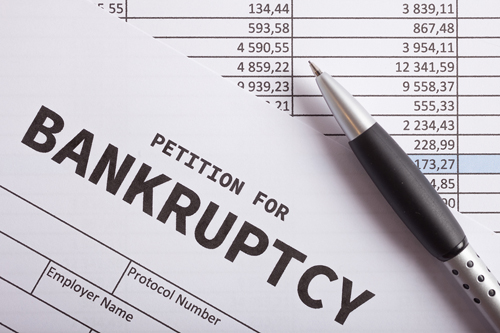How Often Can You File a Chapter 7 Bankruptcy Case in Pennsylvania
Chapter 7 was designed to get folks out of debt quickly and relatively easily. If you pass the means test, own few or no non-exempt assets, and have primarily unsecured debt, you could find yourself debt-free in four or five months. Our experienced Pennsylvania bankruptcy lawyers will help ensure the process runs smoothly.
Under the Bankruptcy Code, there is no limit to the number of Chapter 7 cases an individual is permitted to file. Technically, there is also no time limit between your filings. You could file for bankruptcy as many times and as quickly as you want.
However, there are specific limits to how often you are entitled to a discharge. To obtain another discharge through a Chapter 7 bankruptcy filing, you must wait eight years from the filing date of your previous case. It is important to remember that the filing date controls – not the discharge date. If you have any questions or concerns regarding a Chapter 7 bankruptcy case, call Young, Marr, Mallis & Associates at (215) 701-6519.
Filing Another Pennsylvania Chapter 7 Bankruptcy After Receiving a Discharge
Most people file for bankruptcy to discharge their outstanding debt. Through Chapter 7, a filer could eliminate their unsecured debt in a matter of months. However, once the court enters your Chapter 7 discharge, you will not be permitted to obtain another discharge for eight years from the date your previous bankruptcy petition was filed.
When you meet with one of Pennsylvania bankruptcy attorneys, you need to provide the case number and filing dates of any previous bankruptcies. Our office will also review court records to confirm whether any older cases exist. Timing is crucial when filing for bankruptcy. You do not want to jeopardize obtaining a discharge because you filed another case within the eight-year waiting period.
Filing Another Pennsylvania Chapter 7 Bankruptcy if You Did Not Receive a Discharge
It is possible to file a Chapter 7 Bankruptcy and not receive a discharge or have your case dismissed. Unless your case was dismissed with a bar imposed by the court, you could file another Chapter 7 at any time.
There are many reasons why your case was dismissed or you did not receive a discharge.
- The voluntary petition was filed. However, subsequent required documents were not.
- You filed the case without taking the required credit counseling course or failed to complete the debtors’ financial education course at the end of your case.
- You failed to provide the trustee with required documents or statements, such as copies of your tax returns or pay stubs.
- The meeting of the creditors was never held or completed.
- You or your lawyer failed to meet any other requirement.
If the court believes your failure was an act of bad faith or otherwise inexcusable, you could be barred from filing another case for a specific period. It is important to review the case file and related documents with our office before proceeding with another bankruptcy filing.
Filing Chapter 7 After Receiving a Discharge in a Pennsylvania Chapter 13 Case
If your previous bankruptcy was a Chapter 13 case and you received a discharge, you need to wait at least six years from the filing date to file a Chapter 7. Only then will you be eligible for a discharge. In many cases, this is not that long of a wait. Because a Chapter 13 bankruptcy typically takes five years to complete.
However, there is an exception to this rule. If you paid all of your creditors in full through your Chapter 13 bankruptcy plan, you could file a Chapter 7 case immediately. Additionally, if you paid 70% or more owed to your unsecured creditors and the court deemed that your effort was in good faith, you do not have to wait six years to be eligible for a Chapter 7 discharge.
The above limitations only apply if you received a discharge in your Chapter 13 cases. If your case was dismissed or if you did not receive a discharge, you could file a Chapter 7 case immediately.
What is a Chapter 20 Bankruptcy in Pennsylvania?
Most people know about a Chapter 7 or Chapter 13 bankruptcy. However, sometimes a pragmatic lawyer will file a Chapter 20. A Chapter 20 is not a recognized type of bankruptcy under the Bankruptcy Code. Rather, it is a pairing of a Chapter 7 case and a Chapter 13 bankruptcy for the debtor’s benefit.
For example, a person could file a Chapter 7 to discharge their unsecured debts and immediately file a Chapter 13 case to stop a sheriff’s sale or pay a secured or priority debt.
Chapter 20 filings are rare but could be very helpful under certain circumstances. For instance, some debtors have too much debt to qualify for a Chapter 13 case, but their home is in foreclosure. Since there are no debt limits in Chapter 7, they could discharge their debt and then file Chapter 13 to save their home. Our knowledgeable Pennsylvania bankruptcy lawyers will carefully look at your debt and assets to determine if a Chapter 20 would be beneficial.
Contact Our Pennsylvania Bankruptcy Attorney to Determine if You Are Eligible for a Chapter 7 Discharge
Some people need to fill more than one Chapter 7. Perhaps they received a discharge but later lost their job or had an unexpected medical condition. In other cases, someone might have tried filing themselves, resulting in their case being dismissed for one of many possible reasons. If you need to file another Chapter 7 or have questions about filing another case, contact our experienced Pennsylvania bankruptcy lawyers at Young, Marr, Mallis & Associates. Call (215) 701-6519 to schedule a free appointment.






























